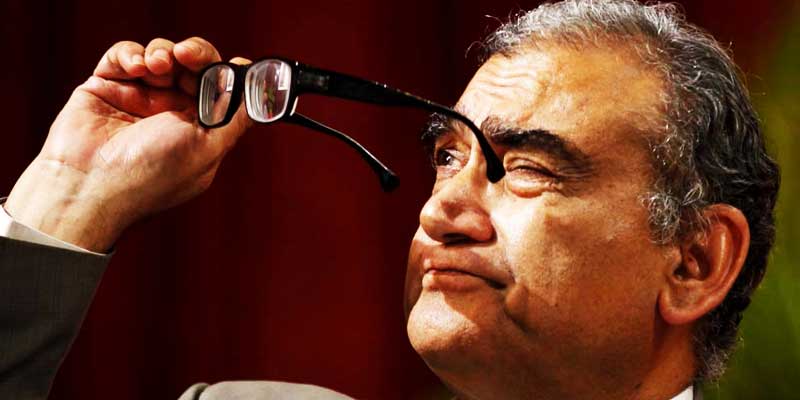Press Council of India chairman, Justice Markandey Katju, has written an expose in a leading English newspaper on how corruption has infested the Indian Judiciary.
Press Council of India chairman, Justice Markandey Katju, has written an expose in a leading English newspaper on how corruption has infested the Indian Judiciary.
The article singles out an unnamed judge in the Madras High Court who allegedly continued in office despite collegium’s recommendation against his confirmation.
Katju, through his expose, has managed to throw dirt on the previous UPA government of Manmohan Singh and Sonia Gandhi.
The article, carried by The Times of India, says that the unnamed Madras high court judge had several adverse entries against him recorded by various portfolio judges. Katju says that when he was appointed Chief Justice of the Madras High Court in 2004, he was prompted by the “many reports about his corruption” to request then Chief Justice of India Justice RC Lahoti to ask for a secret Intelligence Bureau inquiry.
The IB, Katju claims, had confirmed the reports of corruption and, a Supreme Court collegium “recommended in view of the adverse IB report” that the judge be discontinued. However, six other additional judges appointed along with him were confirmed and made permanent judges.
The Supreme Court collegium’s report was sent to the Union government, as the judge’s two-year term as additional judge was coming to an end. But, Katju claims, a political party whose support was critical to the then UPA government reportedly blocked the recommendation.
In the article that Katju has also posted on his blog and his Facebook page, he writes: “One such ally was the party in Tamil Nadu which was backing this corrupt judge. On coming to know of the recommendation of the three-judge Supreme Court collegium they strongly objected to it.
The information I got was that Prime Minister Manmohan Singh was at that time leaving for New York to attend the UN general assembly session. At the Delhi airport, he was told by ministers of the Tamil Nadu party that by the time he returned from New York his government would have fallen as their party would withdraw support to the UPA (for not continuing that additional judge).”
Eventually, the high court judge in question got a year’s term as additional judge twice, before he was confirmed as a permanent judge and transferred to another high court.
Katju has chosen not to name either the judge or the party, though any daft person can even guess that the party was DMK as it is the only large and critical Tamil Nadu constituent of the UPA.
But the story, which Katju narrated, actually doesn’t finish his way. If his tale is true, the subsequent judges are also as corrupt as seat-saving Manmohan Singh and his UPA. Given the narration and time, one will find that while CJI Lahoti merely extended the corrupt additional judge’s term by a year, his successor as CJI, YK Sabharwal, gave him a fresh term, and the man who succeeded him as CJI, KG Balakrishnan, made the judge’s appointment permanent and moved him to another state.
It should be remembered here that both ex-CJIs, Sabharwal and Balakrishnan, have faced adverse scrutiny after they laid down office. Former Law Minister and AAP leader Shanti Bhushan had alleged that eight of 16 former CJIs were corrupt. He had even said that he was willing to be in contempt of the court for this statement.
Katju, through his post, has undoubtedly exposed the corruption in the judiciary and he also says that his objective in writing the blog post was to “show how the system actually works”.
But Katju’s revelations are nine years late.
The question is why he kept it a secret for nine years and now chose to expose the matter only as an “example”?
Katju provided an explanation through an interview to a television channel: “Better late than never… The question is not why I am saying this now but whether what I’m saying is right or wrong… Why are you concerned why I am making a statement now or whether I should have done it before?”
Whatever course the case takes, the stature of the judiciary has been lowered.




